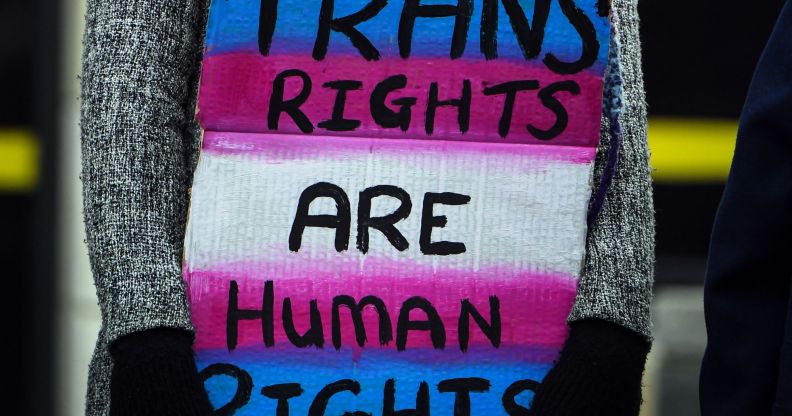Minnesota passes urgent bill to protect life-saving trans healthcare – putting most of US to shame

Trans health care is now protected in Minnesota (Getty)
Minnesota governor Tim Walz has signed an executive order to protect life-saving healthcare for transgender people in the state.
In a win for the LGBTQ+ community, Walz signed an executive order last week that protects gender-affirming care, giving some relief to the transgender community that has faced discriminatory, hurtful legislation from Republicans across the country.
“We uphold the essential values of One Minnesota, when all people, including members of the LGBTQIA+ community, are safe, celebrated and able to live lives full of dignity and joy,” the executive order read.
“Minnesota strives to be a welcoming and supportive place for LGBTQIA+ community members.”
Numerous organisations have said that access to gender-affirming care is vital for the mental – and physical – health of transgender people.
Calling it a “deeply personal” decision, Walz, a Democrat, who has been the state’s governor since 2019, said that the deliverance of care was “urgent”.
A new study, published by the New England Journal of Medicine, shows how gender-affirming healthcare improves the mental health of trans teens.
The research evaluated 315 transgender youths between the ages of 12 and 20 and followed them for two years while they were treated with hormone-therapy.
The results showed that participants reported an increase in positive emotions, life satisfaction and improved self-confidence, while reporting less anxiety and a decrease in depression felt.
Hormone therapy is the process of giving hormones, such as oestrogen and testosterone, to those experiencing gender dysphoria.
The findings – like many research papers before it – supported the use of hormone therapy as an effective treatment for trans and non-binary young people.
Another study, published by health journal, The Lancet, found the majority of adolescent patients diagnosed with gender dysphoria stick with gender-affirming treatments as they get older.
Conducted by the gender identity clinic at the Amsterdam UMC Hospital, in the Netherlands, the research involved 720 adolescent people who were diagnosed with gender dysphoria and prescribed puberty blockers.
It found a total of 98 per cent of those who started gender-affirming medical treatment in adolescence continued to use gender-affirming hormones.
How did this story make you feel?

